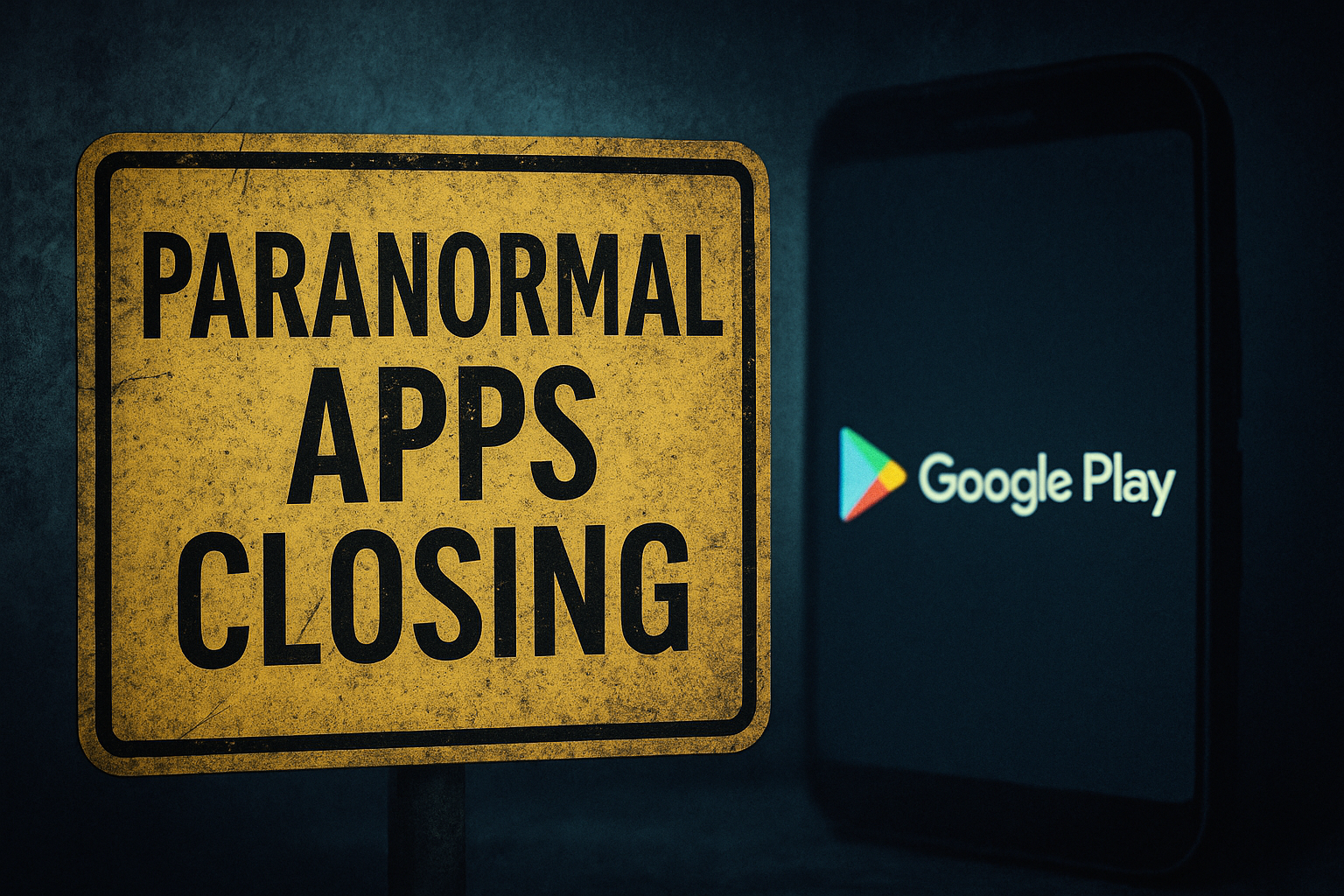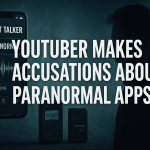Recently, several developers in the paranormal community have quietly closed down their app stores, removed their apps from marketplaces, or halted updates entirely. The public explanation? “Google keeps moving the goalposts for apps.”
It’s an understandable complaint — Google does update its policies frequently — but that answer is only half the story. What’s really happening is that Google is tightening control, increasing security demands, and forcing developers to prove legitimacy. Many smaller or hobbyist developers simply can’t — or won’t — jump through the new hoops.
Let’s dig into what Google is doing, how it affects paranormal app creators, and why the “moving goalposts” excuse actually hides the larger power shift.
What Google Is Changing (and Why)
Here are the key policy updates and enforcement changes making life harder for developers — especially those in niche areas like paranormal apps:
1. Developer Verification Requirements for All Apps
Google is expanding identity verification beyond just Play Store apps. Beginning in 2025, all apps installed on certified Android devices must be registered by verified developers. Even apps distributed outside the Play Store (sideloaded or through alternate stores) are now included.
The idea is to enforce accountability, reduce anonymity (which can hide malicious actors), and prevent banned developers from reappearing under fake identities.
2. Stricter Checks on Sideloading / Alternate Distribution
Traditionally, Android’s openness allowed apps to be installed from outside the Play Store. But now, unverified developers may find their apps blocked from sideloading on certified devices. This change cuts off one of the biggest escape routes for smaller developers.
3. Stronger Business Verification
Google already requires business checks like D‑U‑N‑S numbers for developer accounts on the Play Store. These requirements are now spreading to alternate distribution methods as well. This makes it harder for indie or hobbyist developers who don’t operate as formal businesses to survive.
4. “Moving the Goalposts” as Control, Not Chaos
From a developer’s perspective, frequent policy updates can feel arbitrary. But in reality, Google is deliberately centralising control — tightening security, limiting anonymity, and making enforcement stronger. It’s not random; it’s power consolidation.
Why Paranormal App Developers Are Hit Hard
So why are paranormal apps disappearing more than others?
- Cost & overhead: Formal verification requires fees, registrations, and time. For indie devs making niche apps, the return often isn’t worth it.
- Loss of anonymity: Paranormal creators who prefer to stay private can no longer do so.
- Niche scale: Paranormal apps rarely make big money. Compliance burdens discourage updates or new releases.
- Risk factor: If verification fails, or apps get blocked, small developers lose everything. Some choose to close up shop instead.
What This Means for Users & the Paranormal Community
- Expect closures: More paranormal apps may vanish from Google Play or alternate stores.
- Fewer risks: Developers will only build what can pass Google’s checks.
- Legitimacy as a filter: Surviving apps that meet Google’s verification will be seen as “legit”.
- New platforms?: Developers may look toward alternative operating systems, open‑source projects, or independent app stores to keep their “creativity” alive.
Final Thoughts
When a paranormal developer says “Google moved the goalposts”, what they really mean is “Google raised the bar for legitimacy and compliance.”
For some, that bar is too high. For others, like us (Spotted: Ghosts), it’s an opportunity to prove their apps are serious, safe, and here to stay.
If a developer disappears when these new requirements take effect, it often means they were unable or unwilling to meet Google’s stricter verification standards.
On the other hand, if a developer continues to operate under these new rules, you can be confident that their apps are backed by a verified, legitimate business and that those apps have always been built on a solid / secure foundation, and the new regulations only make that clearer.
Either way, the landscape is changing — and the paranormal community will need to adapt if it wants to keep building and using the tools that connect us with the unknown.
Conspiracy Theorist YouTuber Makes Accusations About Paranormal Apps
A YouTuber recently released a video attacking ghost-hunting tools and apps — while showing Spirit ... Read more
Why Paranormal Evidence Might Elude Non-Believers
When skeptics or non-believers visit haunted locations, they often do so with the mindset that ... Read more


